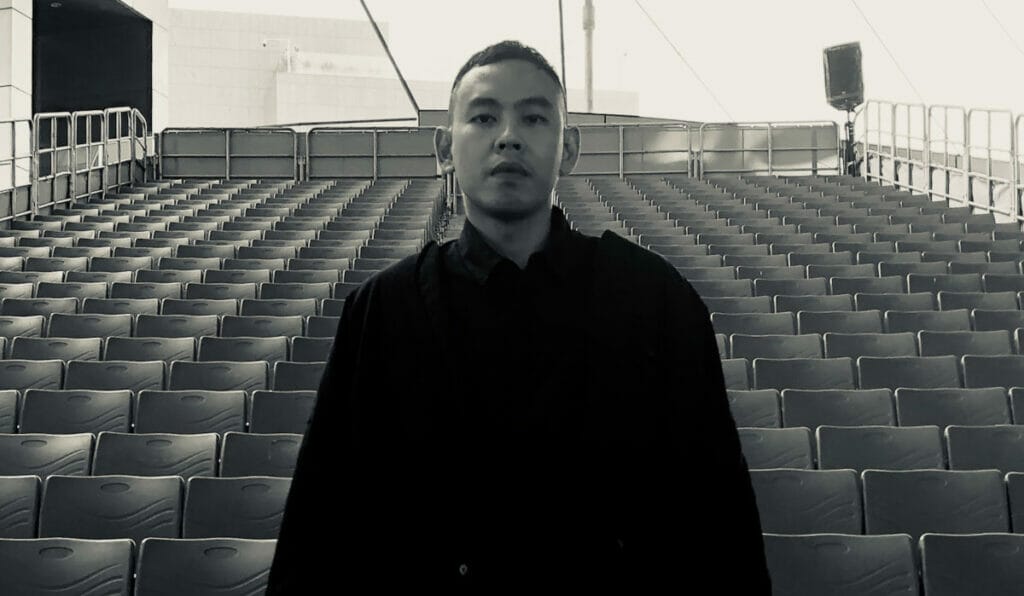ZAHIR OMAR
Filmmaker Zahir Omar, 37, is the first ever recipient of the BMW Shorties Award. His debut feature-length movie Fly By Night has made the international circuit including the Busan Film Festival, and is set for release locally on 11 April.
How did you discover your passion for filmmaking?
I grew up in a production family background, my dad used to be a commercial film maker, my mom was a makeup artist, and my uncle was a Director of Photographer (DOP). When I was young, every time they used to go out for shoots, which would be a lot, they would leave a bunch of VHS tapes for me to watch. So that is pretty much what I grew up watching. I understood movies from a very young age, and I really enjoyed watching stories being told. My dad is a good storyteller, also, so he would tell me a lot of stories and connect the storytelling to the movies.
From filming commercials to short films to a full movie, was there anything you learned that you brought with you to your directors chair on Fly by Night?
I have been doing commercials now for the past 10 – 12 years. That gives you the flying hours to apply it to feature films. Getting into it was weird because you get a lot of people saying, “If you do commercials you’re a sprinter, whereas feature films are a marathonâ€. Now I have realised, because I have had so many flying hours that I can actually sprint in the marathon. I mean the set has always been a zone for me, where I feel very comfortable. So with the transitioning, I wouldn’t say it would be transitioning, I would say it’s reaching a destination I’ve always been headed towards. It was, as my late writer would say, “it’s practise lah, now game time is onâ€.
As a first time film director, did you ever expect your thriller to have garnered the recognition that it did at the Busan Film Festival?
That was a complete surprise. What we did set out to do was to bridge the indie and the commercial market, in the sense that you want to make good films with great substance and equally as good looking— people really could not understand where to place this genre.But we went ahead and made it anyway.
We shot it first, and sent it to a lot of festivals, and a lot of them said no. The producers were getting anxious because when you go to festivals you meet people, gain traction in the market, in the hope it gets picked up. We got picked up by Good Move Media, but then it was quiet for a while, and there was a lot of worry. Then I got the email from the Asian Cinema Fund (ACF), and they told us we got the funding but on their terms, which we had to have a premiere at Busan. I didn’t know we applied to Busan!
What was the reception to the film at the Busan Film Festival?
It was quite well received because that was the look, that was the backdrop, that was the setting. But there was a very human element, in terms of the characters. There is no black and white, it is always just grey. I always set out to have you as the viewer to relate to any one of my characters, if I can do that I would have achieved my goal.
Were there any directors or movies that inspired Fly by Night?
I would say Taxi Driver and Drive. I think the weirdness of the characters came from the Coen brothers.
Tarantino is my old favourite, some Korean directors as well, in the Korean film genre. Johnnie To was a big inspiration for me also. The movie was an accumulation of things that I am familiar with.
What advice would you give younger Malaysian filmmakers trying to make it onto the scene?
There’s a whole journey before you even get to direct. I started off as a runner, as a coffee boy, then casting, and then system director. You have to do all of that, because that actually gives you practical learning.
That is the beautiful thing about production, it is always evolving, it is so organic. So what I would say to the young people, is to go out and try and do your own stuff. Have revision, try and tell it the way you can, get your work out there. But the craft is something that you need to spend some years learning. That is the only way you can sharpen your craft, by failing. You need to fail as much as possible. Also by failing, you break down the ego and it teaches you your sense of self. The minute you play victim, it is going to be hard to tell the story.

TEXT NEDA AL-ASEDI & SWAROOPINI UDHAYA NAIR
PHOTOGRAPHYÂ ROBIN LIEW
ART DIRECTIONÂ AUDREY LIM



